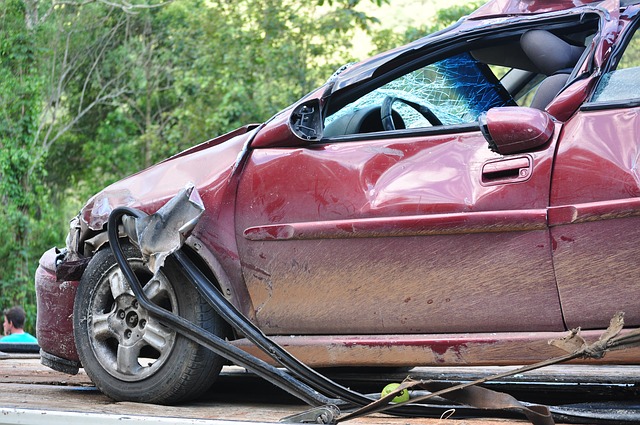In a perfect world, owning a car would be simple. You’d buy the car after good, impartial advice from the salesperson, having worked together to find exactly the vehicle that’s the right fit for you. Getting all the paperwork right would be a cinch; there’s be nothing for you to overlook, all simplified and easy to understand. You’d drive out owning a car you could afford, that suited your lifestyle, and which would be repaired by a great autoshop if you ever had any problems with it.
What a shame we don’t live in a perfect world.
The above is a miserable thought, but it’s a harsh reality that all adults at some point are forced to come to grips with. The world isn’t perfect. The salesperson who sells you a car isn’t trying to find a good match for you; they’re looking to their own commission. The mechanic who does your repair might be looking for ways to get the most money from you, not particularly concerned about getting the job right. The insurance company and warranty provider aren’t looking out for you either; they’re thinking of their own profit margins. Not living in a perfect world is something we all have to come to accept– though, of course, that doesn’t mean we like it.

Of course, there are good people out there too, who will want to help you and ensure you’re as happy as can be. There are also middling people, who will do the bare minimum, but won’t set out to actively cause you any harm. It’s the last group — the outright bad group — that you need to be particularly careful of. Car ownership can deal you a number of harsh lessons, not least because of the number of potential scams it exposes you to. If you want to ensure your time as a car owner is as good as possible, you need to keep your eyes wide open for the most common car-related scams. Such as…
1) Sold Cars With Severe Accident Histories

Would you buy a car that had been through a severe accident? Perhaps even severe enough for it to have been an insurance write-off?
Probably not. If a car has undergone extensive repair, then it will always be somewhat compromised when it comes to safety. With every repair, there is the capacity for errors. Although it’s possible to get insurance write-offs back on the road, that doesn’t mean you should. They will never be as safe as new cars; they will always have that black mark in their past.
The sad truth is that, if you buy a used car, there’s always a chance that vehicle has a severe accident history. The reason for this is simple: profit for the car dealership. Dealerships and car lot owners can buy insurance write-offs for a low price, as they have been deemed unworthy of fixing by the insurance company. These cars are then fixed up to look as good as new– at least, they are on the outside. The cars look right and, for the short time you spend inside of them for a test drive, they drive okay as well. However, over time, they become unreliable and potentially dangerous.
And you have no way of knowing if you’re buying such a car. You can request accident background checks, but these are not as thorough as one might hope.
How To Stay Safe: When it comes to figuring out how to buy used car that is safe and roadworthy, the key word to keep in mind is: Information. You want all the information you can get; ask questions, be dubious, don’t take anything that you’re told at face value. Verify everything, from the authenticity of the vehicle report right down to the description of how good a condition the vehicle is in. Be a sceptic; it will serve you well.
It also helps to go to a reputable dealer with a good history; always check online to see if other customers have had bad experiences with a dealer. If you do find a bad record, then avoid that dealer like the plague.
2) Insurance Policy Small Print
Archives Bills Documents Accounting Workbook
Car insurance is one of the larger amounts you will spend as part of your monthly budget. You therefore need to know exactly what you’re buying, and whether it covers you and your car for all eventualities.
This is easier said than done. You’re going to need to grab a magnifying glass and get to grips with the fine print on your policy. Most of us buy insurance policies primarily based on price; we don’t want to overpay, so as long as all the other details look okay at a glance, we’ll just go ahead with the best deal. However, digging through the fine print could save you a lot of hassle in the future.
A surprising number of things can outright void your insurance policy. You need to know what these things are and avoid them at all costs, otherwise all the money you have paid for insurance is a complete waste. You also need to know all the rules about what you can and can’t do with your car. For example, did you know you may need to change your insurance policy if you decide to use your car for work?
3) The Horror Of “Extended Warranties”

When you’re buying a new car, you’re going to want it to be perfect for as long as possible. That’s why we all find ourselves tempted by the “extended warranty” promised to us by the dealer or salesperson. If you’ve spent all that money on a brand new motor, then of course you’re not going to mind paying a little extra to keep you on the road in great condition.
Here’s the thing: extended warranties for new cars are a total waste of time. If you take such a policy out, you’re going to find yourself over-covered. Your manufacturer’s warranty will cover you for up to a year (and sometimes more), and any other issues you experience can be covered by your insurance. So firmly shake your head at the idea of an extended warranty; they are a complete waste of money.
4) Overcharged For Unnecessary Work

Most of us don’t know an awful lot about the way our cars run. We might know the basics, but not enough to be able to undertake repairs ourselves. Thankfully, there’s an entire industry of mechanics and autoshops that we can rely on to do this work for us.
However, there are certain, less reputable, people in the repair industry. People who may take advantage of your ignorance about what is wrong with your car. The problem you’re experiencing with your car might have a very small fault, something that can be fixed in less than 10 minutes. However, if a mechanic fixes your car that quickly, they’re not going to make much money from you.
A good mechanic or autoshop won’t mind the low-value transaction. They will be honest about the ease of fixing the fault, do the repair, and rely on you coming back to them for business in future. That’s how it should be done. On the other end of the scale are the people who will exaggerate the issue with your car. They will inflate the issue, making that small, easy fix into a huge job that is going to cost you a fortune to do. And who are you to disagree? You’re not an expert; you have to trust what they’re telling you.
This overselling over repairs is a common problem, and one you need to constantly be on your guard for. If an autoshop does give you an exorbitant quote, then you’re well within your rights to ask for a second opinion. Only when you’re sure the work that is being done is actually necessary should you agree to make any payment.
Finally, if you find a good mechanic that you trust to always tell you the truth, hang on to them. They’re worth their weight in gold.
5) Extortionate Car Loans

If you can’t afford to outright buy a car with your own funds, then a car loan seems like the perfect solution. Car loans are relatively easy to obtain, and you could find yourself with a new motor in rapid time. As long as you can afford the monthly repayments, what’s the harm?
The harm is actually fairly substantial. While there are good deals out there, some car loans are ridiculously expensive, with the interest rates often topping 50%. Do you need a car that badly, so much that you’re willing to overpay interest to that extent? These “deals” are most frequently offered to customers with bad credit, but if your finances are insecure, a subprime car loan is the last thing you need.
Always read the fine print before signing any loan agreement, so you know exactly how much you’re ultimately going to be paying back for your car. You always have the option of saving for a little longer and then buying a car without finance; a decision that’s far better for your future financial situation when compared to extortionate interest rates.
In Conclusion
Scams, tricks, and cons are littered throughout the car industry– but hopefully you now know how to avoid the worst of them.




